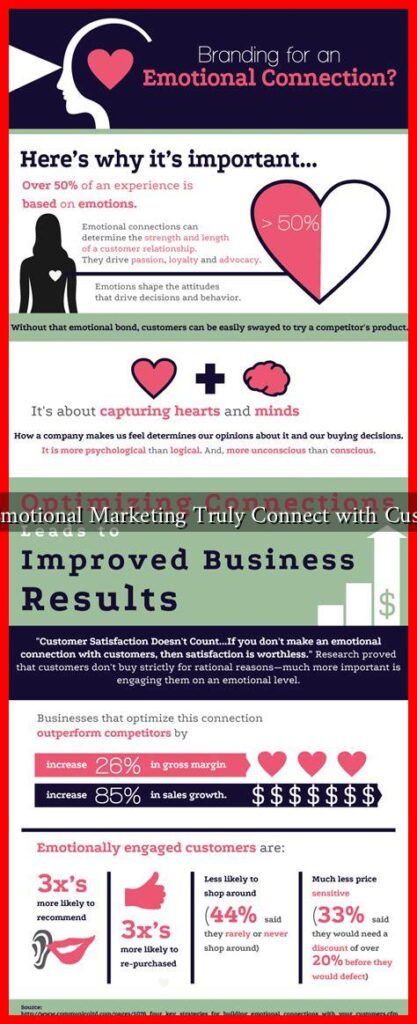-
Table of Contents
- Does Emotional Marketing Truly Connect with Customers?
- Understanding Emotional Marketing
- The Science Behind Emotional Marketing
- Key Elements of Emotional Marketing
- Successful Examples of Emotional Marketing
- The Impact of Emotional Marketing on Customer Loyalty
- Challenges and Considerations
- Conclusion
Does Emotional Marketing Truly Connect with Customers?
In an era where consumers are bombarded with advertisements at every turn, brands are increasingly turning to emotional marketing as a strategy to stand out. But does this approach genuinely resonate with customers? This article delves into the essence of emotional marketing, its effectiveness, and how it can create lasting connections with consumers.
Understanding Emotional Marketing
Emotional marketing is a strategy that aims to evoke specific feelings in consumers to drive engagement and influence purchasing decisions. By tapping into emotions such as happiness, nostalgia, fear, or empathy, brands can create a more profound connection with their audience. This approach is grounded in the understanding that emotions significantly impact consumer behavior.
The Science Behind Emotional Marketing
Research indicates that emotional responses can be more influential than rational ones when it comes to decision-making. According to a study by the American Marketing Association, emotionally charged advertisements can lead to a 23% increase in sales compared to those that focus solely on rational appeals. This statistic underscores the power of emotions in shaping consumer preferences.
Key Elements of Emotional Marketing
To effectively connect with customers, emotional marketing must incorporate several key elements:
- Storytelling: Narratives that resonate with the audience can evoke empathy and create a memorable experience.
- Authenticity: Brands that are genuine in their messaging are more likely to build trust and loyalty.
- Visual Appeal: Compelling visuals can enhance emotional engagement and make the message more impactful.
- Relatability: Content that reflects the audience’s experiences or aspirations fosters a deeper connection.
Successful Examples of Emotional Marketing
Several brands have successfully harnessed emotional marketing to connect with their customers:
- Coca-Cola: The “Share a Coke” campaign personalized bottles with names, encouraging consumers to share their experiences. This campaign not only increased sales but also fostered a sense of community.
- Google: The “Year in Search” videos highlight significant global events and personal stories, evoking nostalgia and reflection. These videos resonate deeply with viewers, reinforcing Google’s role in their lives.
- Always: The “Like a Girl” campaign challenged gender stereotypes and empowered women, creating a strong emotional connection with its audience while promoting social change.
The Impact of Emotional Marketing on Customer Loyalty
Emotional marketing not only drives immediate sales but also cultivates long-term customer loyalty. According to a study by McKinsey & Company, emotionally connected customers are more than twice as valuable as highly satisfied customers. They are more likely to repurchase, recommend, and remain loyal to a brand over time.
Challenges and Considerations
While emotional marketing can be highly effective, it is not without its challenges:
- Over-saturation: As more brands adopt emotional marketing, standing out becomes increasingly difficult.
- Misalignment: If a brand’s emotional messaging does not align with its core values, it can lead to consumer distrust.
- Short-lived Impact: Emotional campaigns may have a fleeting effect if not supported by consistent brand messaging.
Conclusion
Emotional marketing has proven to be a powerful tool for brands seeking to connect with their customers on a deeper level. By leveraging storytelling, authenticity, and relatability, brands can evoke emotions that drive engagement and loyalty. However, it is essential for marketers to navigate the challenges associated with this approach carefully. Ultimately, when executed thoughtfully, emotional marketing can create lasting connections that not only enhance customer experiences but also drive business success.


